When should I spay my border collie bitch?
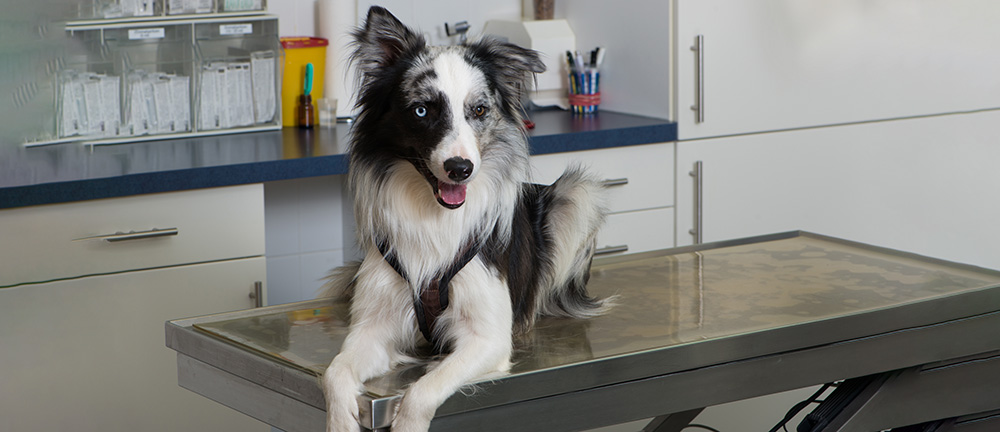
I have been asked several times recently "When should I spay my border collie bitch"? This is a big question and a big decision, and there's some very divided opinions. You may have heard different opinions from friends, family, strangers on walks, vets, trainers and behaviourists, not to mention the various and often contradictory information you may have read online.
I'm not a vet, but in this article I'll present some of the information you need to know so that, along with your vet, you can make an informed decision based on your and your dog's unique circumstances.
The science
What does science tell us?
Recent research has suggested that neutering can increase the risk of some breeds of dog developing joint disorders or the following cancers: lymphoma, mast cell tumour, hemangiosarcoma and osteosarcoma. There is also an increased risk of urinary incontinence. Unfortunately, there has also been evidence that NOT spaying a bitch can lead to an increased risk in mammary cancer and also pyometra, a serious and potentially life-threatening infection of the uterus. So it's so difficult for owners to decide what to do for the best.
In order to investigate this further, the authors of the following scientific paper looked at 35 dog breeds to determine the safest age at which to neuter dogs, and the border collie was one of the breeds examined.
You can access this paper here: https://www.frontiersin.org/journals/veterinary-science/articles/10.3389/fvets.2020.00388/full
The study looked at 399 border collies, 105 intact males, 85 neutered males, 88 intact females and 121 spayed females. The study found that neutering male and female collies was not associated with any evident risk of joint disorders. However, in relation to cancer they found the following:

So in border collie bitches spayed at age 6-11 months, there was in increased risk of cancer of 11%. For this reason, the researchers concluded that it was safest for border collie bitches to be spayed at over 1 year of age.
The operation itself
Although this is a routine operation in female dogs, it involves removal of both the ovaries and uterus (ovariohysterectomy), or just the ovaries (ovariectomy). It's not a minor operation and there are risks of complications, although these are usually not serious.
A study performed in 2005 examined the complications observed in the ovariohysterectomy of 142 bitches in a veterinary teaching hospital in Liverpool. The operations were performed by final year students.
9 bitches suffered haemorrhage of the ovarian arteries during surgery, 4 bitches suffered haemorrhage after surgery 12 bitches suffered wound inflammation and 4 bitches had other complications. A total of 21% of bitches suffered complications. (Similar figures to those obtained in other studies). Not only is this concerning from a health point of view, but it's even more visits to the vet for our collies, some of whom can be anxious around strangers and unfamiliar dogs.
The mechanics of the spay experience
As a breed, collies have a tendency to be anxious around unfamiliar dogs, people and in novel situations, especially as they are going through adolescence, when most dogs are spayed. They have been bred to work alone in the countryside with only their owner and sheep. They didn't need to be social with other people or dogs, unlike gundogs, hounds or terriers, who are bred to work alongside other people and dogs. If your girl tends to be fearful, particularly of people or other dogs, then bear in mind that being taken by strangers into a strange, unfamiliar environment, being crated to wait for her turn, and then examined and sedated, as well as waking up without you present to support her, can be extremely stressful for any young dog. For young collies, particularly, this can be an issue. Collies going through adolescence, which can start at around 6 months and continue until your collie is 3 years old, are more prone to being fearful due to going through the adolescent fear period (read more about adolescence here: https://collieconsultant.co.uk/2023/10/18/border-collie-adolescence/. If they do encounter anything that they find very scary during this time, they can be left with lasting trauma.
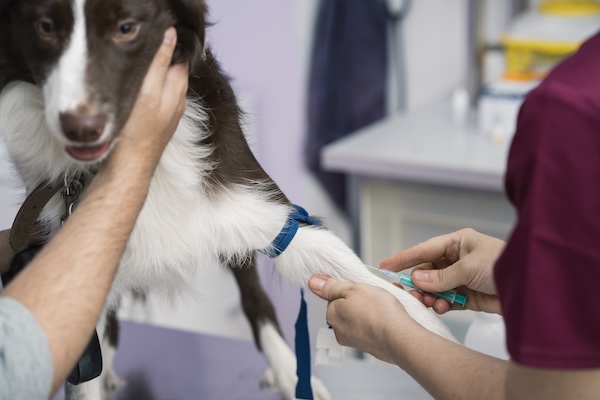
As a collie behaviourist, I have seen several collie bitches who have been negatively affected by being spayed. It's not common, but it happens. They have been much more fearful of going into the vet practise and have become aggressive with the veterinary staff after the operation. Occasionally this has generalised to being fearful of people and sometimes other dogs following the operation. Most will be absolutely fine, but it's something to bear in mind.
Your vet
You should always listen to the advice given by your vet as there may be health reasons and a whole host of other things that vets need to consider when making recommendations about neutering your dog. However, a very small minority of vets may not be aware of the latest recommendations about spaying at older than a year . Therefore, if in any doubt about what your vet is recommending, ask for further information about why they are making their recommendation, and , if necessary, check that they are aware of the paper listed above.
Other health considerations
Seasons
Spaying your collie bitch will prevent your collie from having seasons which usually last about 3 weeks. Some girls keep themselves very clean and have very light seasons, while others have a bit more bleeding, which can be difficult to keep on top of unless you are constantly following her round with antibacterial spray and a cloth!
One option could be to use disposable or washable dog pants but these may be uncomfortable for your girl and take quite a lot of training to ensure that she isn't distressed about having to wear them. Or you could just have old sheets or sheets bought from charity shops to use to cover furniture and carpets.
Pregnancy
Obviously, spaying prevents the risk of your dog becoming pregnant, and pregnancy and birth can be risky to the mum.
Having a litter of puppies is very expensive if everything is done properly. Health tests that are essential for collies if you want to be able to sell the puppies to caring owners include hip scoring, eye tests and genetic tests. There is also the care of the puppies, and injections and microchipping of each puppy. It can all add up very quickly.
And finding good homes for the pups is stressful and difficult.
Phantom pregnancies
If your border collie is spayed, then she should not suffer from phantom pregnancies. It is now thought that all bitches undergo some form or phantom pregnancy beginning 6-12 weeks after each season. This is where the body is preparing for the bitch to have puppies in case she is pregnant. During this time she can struggle with lactating nipples and become anxious, making beds and mothering objects as though they are puppies.
Sometimes there are no obvious physical nesting symptoms or milk production, but your bitch's behaviour may change. When a bitch is pregnant, she has to ensure that she has enough food to maintain her pregnancy, with comfortable, quiet nesting places and bedding. During a phantom pregnancy, her hormones are telling her that she needs to ensure that she is able to access these resources. If she feels that she is in danger of losing these she could become very anxious, leading to resource guarding of food, bedding and sleeping places.
Other behaviour changes may include anxiety, being very affectionate, licking, becoming destructive or becoming very hungry.
It's important to know that there are medications that can help your bitch if she suffers from a phantom pregnancy so please ask your vet for more information.
If a bitch is spayed during a phantom pregnancy, then everything she is feeling at the time will become "locked in" over the long term. So if your collie is prone to resource guarding after her season, spaying too soon after her season could result in the resource guarding becoming a permanent trait. This is why it's very important to allow the correct length of time after her season before spaying. Latest research suggests that this should be done at 20 weeks after the first day of your dog's last season. Some vets may not be aware of this latest research so if unsure, please direct them to these articles:
The top three myths about pseudopregnancy in dogs
Pseudopregnancy in spayed bitches – a preventable welfare problem
Putting on weight
It's important to bear in mind that spayed bitches can have a tendency to put on weight. This isn't an issue so long as you remember to feed her less - her body's calorific requirement is just lower than it was pre-spaying.

Coat change
Several studies have confirmed that spaying bitches can change their coat with one study estimating that 20% of the dogs examined developed coat changes. In a recent poll I carried out on a border collie group asking if people noticed that their collie's coat changed after spaying, 53% of people said yes and 47% said no. The general consensus was that coats can change from smooth and silky to a bit more woolly, coarser, thicker and often curlier.
Male dog attention
However, it's also important to bear in mind how your bitch could be traumatised by the attention she may get when she encounters male dogs when she is in season. Young bitches may also find this very traumatic, particularly if they are already wary of other dogs, as many adolescent collie girls are.
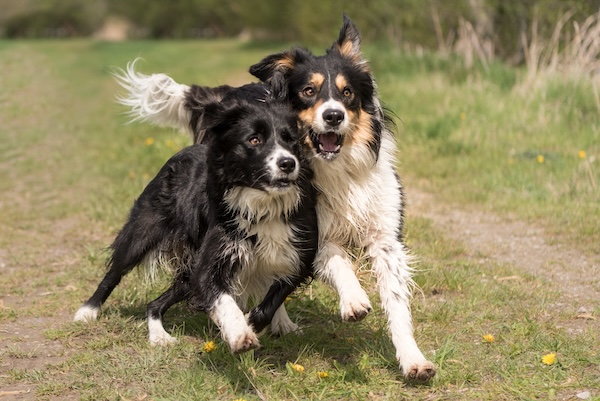
The answer can be not to take them into public spaces when they are in season, but for very lively dogs living in built up areas where there are many other dogs, this can be problematic. The "No Walks, No Worries" book written by Sian Ryan and Helen Zulch can help.
My personal thoughts about my own dogs as a behaviourist
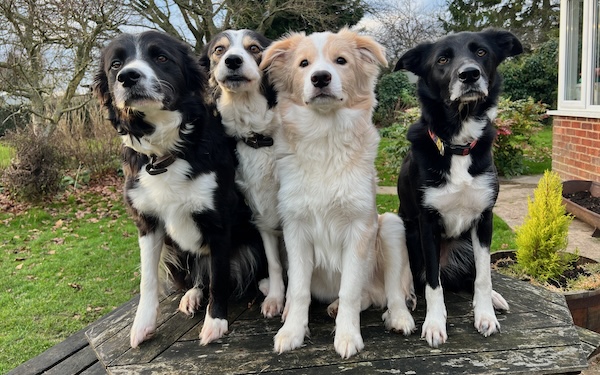
I feel that spaying is a big thing for a dog to go through if it's not essential. I would not want to have a hysterectomy unless I absolutely had to, and I don't want my dogs to go through it for similar reasons. There is not only the actual risk of the operation itself to consider, but there is the fact that the dogs are taken away from the people that we trust, and have potentially scary things happen to them. This can make some dogs much more fearful of the vet and occasionally other people in general.
However...
We live in the middle of nowhere where meeting off lead male dogs on walks never happens, so my girls will never get harassed by attentive males. I like my house to be clean, but we have hard floors, and I can cope with cleaning up blood spots for a few weeks each year. I also have the knowledge and skills to be able to navigate phantom pregnancy issues.
Also, living in the countryside on a smallholding with lots of mud, I don't want my girls to have coat changes that can make their coats less silky and more likely to hold mud.
Having Ozzy has made me re-evaluate whether the girls will be spayed and due to Flo's predisposition to resource guarding for a few months after each season, and just to try to reduce stress for Ozzy, I am considering spaying her now that she is older, but I would not have done it prior to now. She can be very anxious about lots of things, and as a lockdown pup she was taken into the vet without me (due to covid risks) several times. This has increased her anxiety at the vets compared to my other dogs, and I haven't wanted to put her through such a big ordeal unless it becomes necessary. Now that she is older, through adolescence and past all her fear periods, then she should be able to recover from the experience with fewer lasting effects than if she were younger.
It's your decision
There is no right or wrong answer to the question "When is the best time to spay my border collie bitch?". It entirely depends on your unique circumstances and the temperament and health of your collie girl. Read through the information above and discuss it with your vet, and try not to get too anxious about all the statistics and illnesses mentioned above. Do what you feel is the right thing for you, your family and your dog. If you have any questions, just drop me a line and I can help.

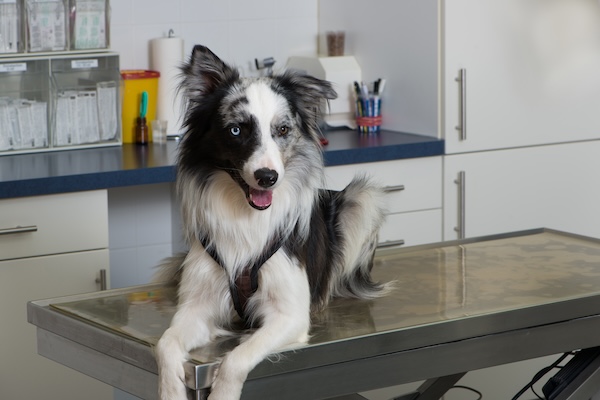
Is removal of ovaries alone a more positive method of spaying?
Hi Lynda, that’s something I don’t know so it will be best to discuss it with your vet. In terms of the psychological issues involved in going in without you, being put under anaesthetic, and waking up in a strange place, this will still be stressful, but most collies handle it. There are just a few where it leads to lasting trauma.